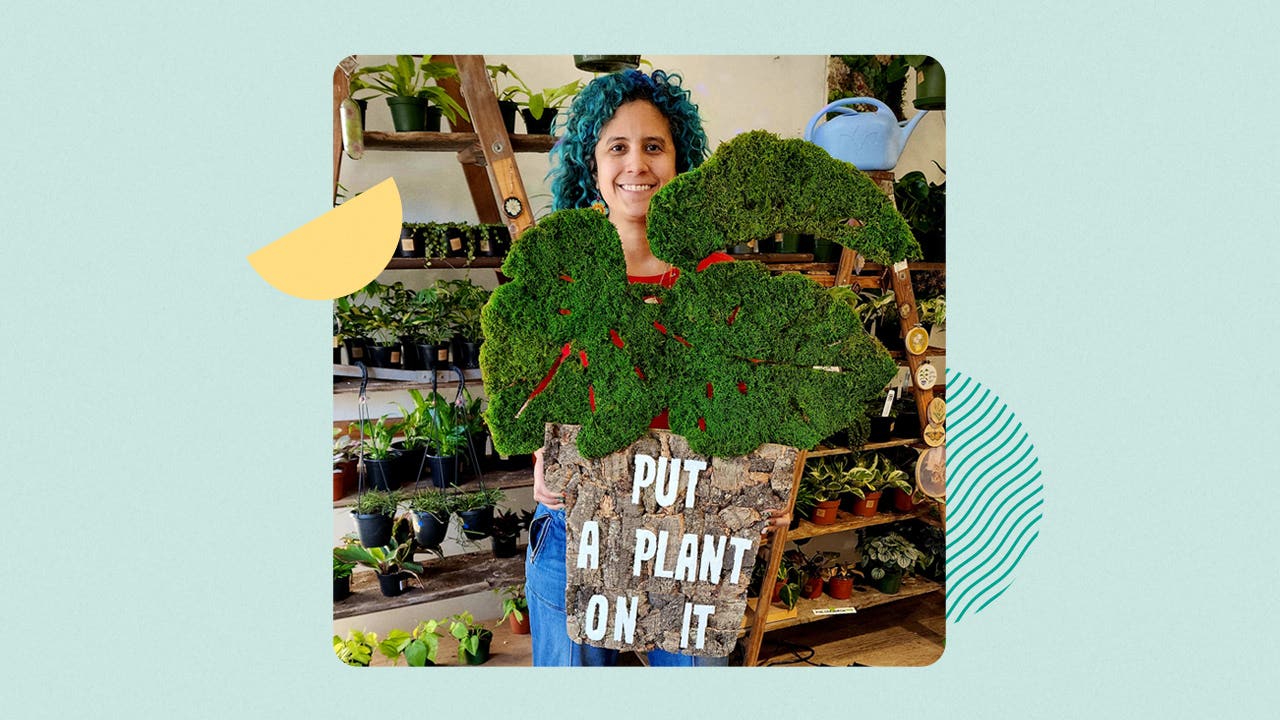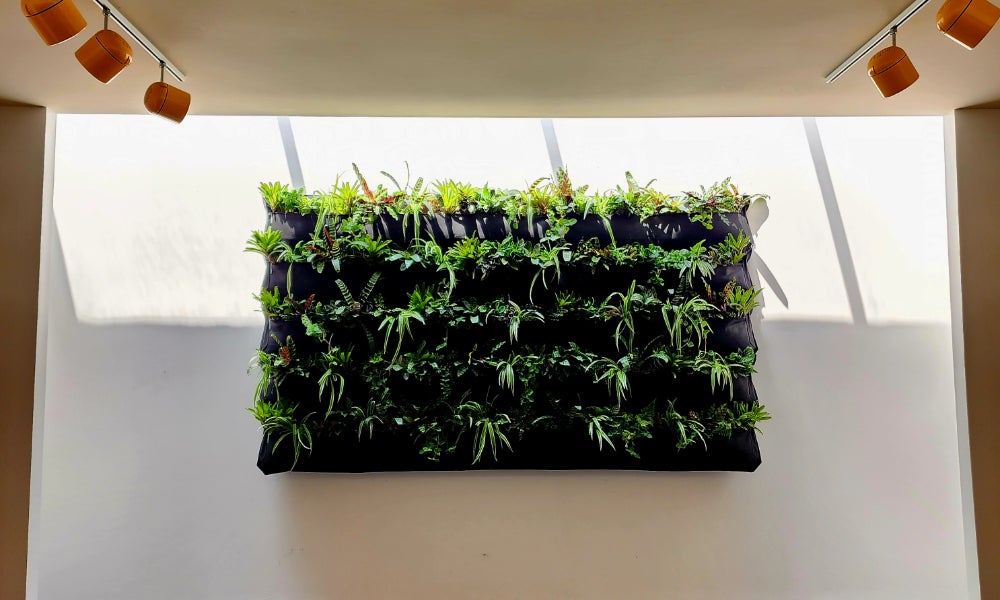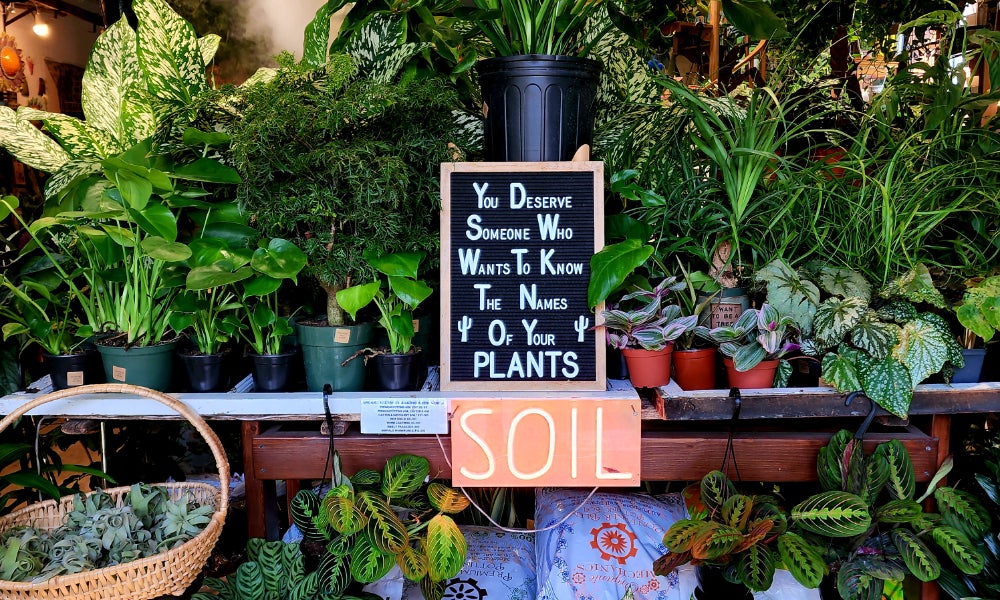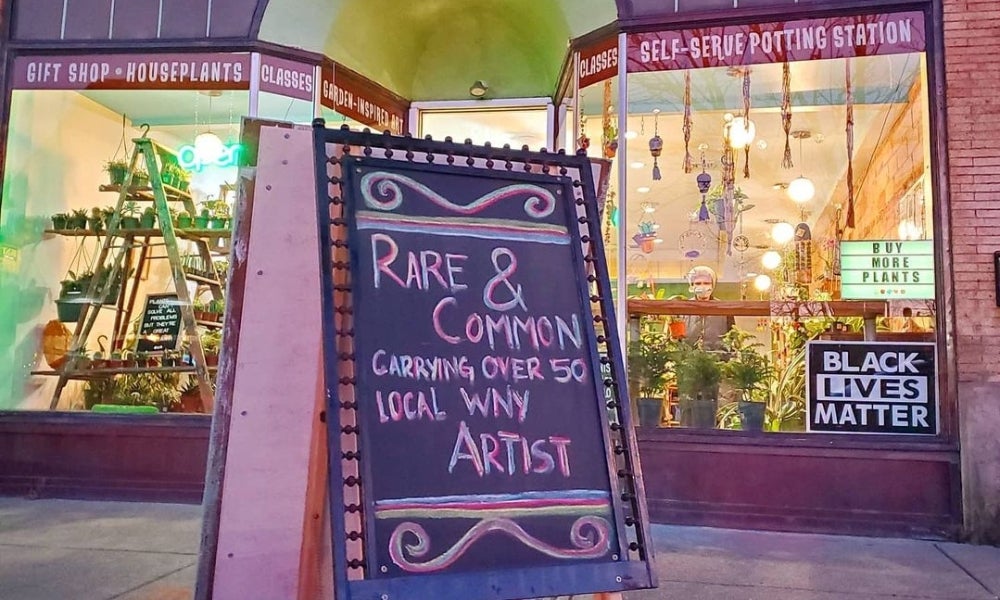How Put a Plant On It built a diverse and thriving business

The Bankrate promise
At Bankrate we strive to help you make smarter financial decisions. While we adhere to strict , this post may contain references to products from our partners. Here's an explanation for .
Johanna C. Dominguez was working in social media marketing when she decided to get a part-time job at a local garden center. As a lover of nature and the outdoors, it was the perfect fit and helped her get out from behind a computer screen. It also served as inspiration to open her own plant shop.
Put a Plant On It was set to open in Buffalo, New York, before COVID-19. Johanna began looking at spaces and contacting landlords in the fall of 2019. While nothing came of it then, in May 2020, a landlord reached out about a space she had previously been interested in, and she decided to go for it.
She’s built a diverse and thriving business with the motto, “More than just plants.” Apart from offering houseplants, Put a Plant On It has houseplant sitting, consultations, interior decorating, repotting services, plant doctor services and classes by staff and visiting artists.
With Small Business Saturday approaching, we spoke with Johanna to learn how she built a thriving business during a global pandemic, her challenges as a small business owner, how she built a social media following on Facebook and Instagram and how she remains successful.
Did you do anything to prepare for opening a business?
I tend to be a spontaneous person. I worked in retail when I was younger and always enjoyed it, but never considered it as something that I’d do. Before opening up my store, I worked at a local nursery, but I didn’t work there with the idea that I’d own my own shop.
I did work on building a social media presence and following before I opened the shop and established myself as a local expert. I had my plant YouTube channel (which did evolve into the store channel) and a plant Instagram for a couple of years before the shop opened.
How did you fund your business?
I had previously worked in New York City for a large organization and had saved up money. Truthfully, though, we didn’t need much to start.
Since we opened up during a time of uncertainty, I didn’t want to ‘invest’ a lot into it. We did minimal demolition in the existing space and used existing structure and form. Our furniture was either mostly garbage picked or donated (it also helped that everyone was cleaning out their homes during the shutdowns). We used old wooden ladders with planks for shelving. I did have two pieces that were custom-built. These pieces were made using salvaged (free) materials, so all I had to pay for was labor in creation.
Most of our artisan stock is consignment, so we didn’t have to initially pay for any of that either, which also greatly helped. By using reclaimed materials to furnish our shop, we not only kept costs down but also have an organic and unique shop that doesn’t look like other plant shops.

What does it take to run a successful business?
One of the things I think that is missed a lot is being present. I know of a few businesses that have closed where the owners opened up the shop, staffed it and then are not physically in their store. Especially in a tight-knit community like Buffalo, it is important to be visible and present in your shop.
Another thing that makes our business successful is our social media. We do an excellent job of entertaining but also educating our customers into engagement.
What advice would you give other small businesses about using social media?
I would advise people to use it and use it consistently. It is time-consuming, and it is difficult to come up with ideas and easy to get burnt out on, but at the end of the day, it is a free (for now) platform. It is all about visibility in this day and age.
I have noticed businesses that have closed or have said that business is bad are ones who do not post regularly. I also think it is important to engage in local community groups. I know, in the plant world, there’s lots of community plant groups. I make sure to engage regularly in those groups as a person (not as a shop entity that only posts when orders come in or there is a sale) and build relationships and establish myself as an authority on plants. I encourage my employees to do so as well.

Do you feel you would have been as successful without building a community?
I think one of the reasons why we are able to thrive is because of the community. Buffalo’s affordability makes it possible for people to be entrepreneurs. Several of my artists are able to make a living creating art — not many cities can claim the same.
We (Buffalo) have dozens of local markets throughout the year which are very well organized and attended. The street that we are on, Elmwood Ave., is almost entirely independently owned businesses with (the) exception of four for a couple miles — I feel like this is unheard of in most American cities these days. The road is surrounded by residential and walkability.
If Buffalo wasn’t such a supportive community, I question whether or not we would be as successful. I have heard and seen a variety of plant shops in other cities that have closed or that have posted GoFundMe initiatives.
What are some of the biggest challenges you currently face as a small business owner?
Currently, our biggest challenge is navigating the post-pandemic plant world. Plants became exponentially popular during the pandemic. Now, things have calmed down. I like it from a personal standpoint because the people who remain are genuinely into plants. The ones that were in it just because they were popular have weeded themselves out.
What are some of your greatest accomplishments as a small business owner?
We have several things that we celebrate here. Since we have been open, we’ve won a Best of WNY award. The first year, we won “Best New Retail,” and the last two years, we’ve won “Best Houseplant Shop.”
Another accomplishment we are proud of is sourcing all of our non-plant product locally. As a result, we are supporting our community. And during the supply chain issues of the Coronavirus, we were not affected.
Our employees start at $15.50, with most starting at $16.50. We support raising the minimum wage to $15 and are an example that it can be done when so many say it can’t.
Do you participate in Small Business Saturday?
Small Business Saturday is our biggest sales day of the year. Normally, we only run sales two times a year — during our anniversary and Small Business Saturday.
We also spend the year propagating and growing a lot of the rarer plants for these special days. By propagating and growing our own, we are able to offer them for cheaper prices. Where a plant sells $400 online and in other shops, we are able to offer them for $100. This really brings people in. Since our stock is all local, people love supporting us and other artisans.

Related Articles

How to make debt work for you: Build wealth with a personal loan


